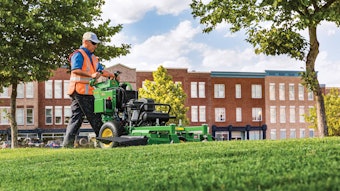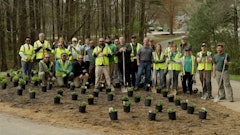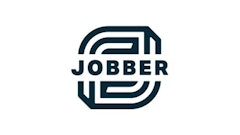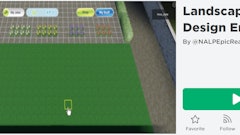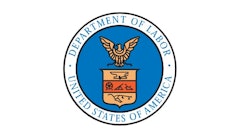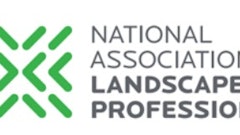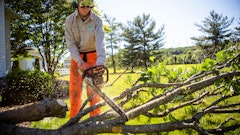
It has been better than a year in the making. PLANET (Professional Landcare Network), the national lawn and landscape association, has changed its name, adopted a new branding platform, and says it is ready to begin regaining control of the message that defines this industry.
"We're proud to announce not only a new name for the association, but also a whole new strategy and brand position—all in an effort to make sure we're meeting the needs of all of our members, and truly creating a great association," says landscape contractor Jim McCutcheon, CEO of HighGrove Partners in Austell, GA. McCutcheon, who has been serving as PLANET's president, was part of a six-person task force solely created to tackle the rebranding initiative. Also on the task force was Scott Jamieson, a vice president at Bartlett Tree Experts. Jamieson will be the new association president when his term begins on May 1.
The new association name, the National Association of Landscape Professionals, was announced on February 26 at the Great Escape Executive Conference in The Bahamas. This launch date was selected in order to give existing association members ample time to learn about the brand and update their own websites and marketing materials before implementation commences in April.
PLANET has more than 3,700 members, roughly half of which are landscaping companies. The other half consists of manufacturers and other suppliers, state and regional associations, faculty and students, and others affiliated with the landscaping and lawn care industry.
Standing up for the entire industry
As McCutcheon points out, the new branding is more than just a name. It's designed to keep the association board and staff members focused on the things that are most important to its members. "I don't know, I might even categorize this as a complete reinvention of this association," he adds.
McCutcheon has been as good a person as any to lead this charge. He's been an association member for 20 years, dating back to the mid-90s when it was known as ALCA (Associated Landscape Contractors of America). ALCA then merged with PLCAA (Professional Lawn Care Association of America) in 2005 to form PLANET.
Today, the National Association of Landscape Professionals has emerged after months of challenging every single thing the association is about. "We did a lot of research to figure out what our members truly need from us," McCutcheon points out. A marketing firm, DeSantis Breindel, was even brought in to help with the research and brand-development process.
"One of the things that came out of this was the strong need for advocacy at both the local, state and federal levels," McCutcheon says. "It's so important to fight bad legislation and regulations. One of the challenges we've had is from an 'association name' standpoint. Nobody really knew what PLANET was. We've had to spend far too much time explaining who we are, rather than getting right to the crux of our argument. Our new name clearly conveys who we are, and quickly establishes that there is a strong association representing this industry."
Aside from working with legislators and government agencies to reduce unnecessary regulations and create a more business-friendly environment for the industry, the National Association of Landscape Professionals also communicates with the media and public at large to raise awareness about the important economic and societal contributions this industry makes. Legislative Day on the Hill, Renewal & Remembrance (at Arlington National Cemetery), Student Career Days and Day of Service are three examples of public outreach programs that have been effective over the years.
Every member matters
Along with the strong need for advocacy, there was another important discovery made during the rebranding research phase. For a long time, McCutcheon says, PLANET tried to be all things to all people—which wasn't necessarily the right way to go.
"As we worked through the research process with current association members, prospective members, past members, legislators, educators, public relations professionals, etc., we started to see a path we had never been on," McCutcheon says. "So in addition to a new name and stronger brand platform, we've established a strategic plan that will be put in place over the next several years to really drill down and focus on the things that matter most to our members."
In addition to advocacy, those things include education and improving public perception of the landscaping industry—each of which is important to all landscape companies, big and small. However, they are important in sometimes different ways.
"It's one of those things that was probably right there in front of us for many, many years," McCutcheon says in reference to the sometimes differing needs of larger-company owners and smaller-company owners. "You can look at it in three ways. First, our smaller-company members are typically looking for the education-based services we provide; they want to learn about estimating and pricing, and all the operational things. So things like webinars and the GIC (Green Industry Conference) are critically important for these members.
"When you look at the mid-size companies, the education is still important," McCutcheon continues. "But these members are also looking for networking, maybe even getting involved with peer groups. It (learning) is more collaborative at this level.
"When you look at the larger companies, although they'll also use these various (educational-based) things, the issues begin to get very different. Advocacy, building the perception of the industry, and helping to make sure we have a great workforce that's coming into the industry become really important.
"We now must be able to speak to all members of the association and all their needs," McCutcheon adds. "But we must also do so very efficiently, and not just throw everything we can possibly throw at them."
Membership must grow
Many national associations often cater to their industry's elite, so to speak; the biggest companies simply looking for the prestige of belonging to the premier national association. The National Association of Landscape Professionals, however, already has a fairly diverse membership base.
More than half of member companies have annual sales under $750,000. Roughly a third actually generate annual sales below $200,000. So clearly it's not just the landscaping industry's biggest companies that find value in joining this national association. Diversity is not the challenge—sheer population is.
In looking specifically at the universe of U.S. landscaping companies (with employees), the National Association of Landscape Professionals has less than 5% in its membership. Even when zeroing in on large companies with annual sales over $2 million, less than 10% join the association. Additionally, just 1-2% of all landscaping industry professionals become Landscape Industry Certified. A new association name and branding platform alone will not improve this and catapult this industry to new heights. But association officials are confident that it's an important first step.
"We needed a clearer name and value proposition to attract new members, and to support the other pillars of advocacy and professionalism in the industry," says Sabeena Hickman, CEO of the National Association of Landscape Professionals. "We need to make it clear to lawmakers, media and the public that we are a powerful and professional industry."
ROI on the membership investment
Once more people—namely landscape contractors—begin showing an interest in the reborn association, officials are prepared to put some steak behind the sizzle.
"Now we have a laser focus on three things: education, advocacy and professionalism," Hickman reminds. "We have confirmation from the member survey that those are the three things members think are most important, so that is where we are putting our focus and our budget.
"For example, we have always offered plenty of education like GIC and webinars and newsletters, but now we are thinking of all our education as a complete knowledge platform, and are looking at all the events as part of a whole picture. We are now looking to see if there are areas of education that need to be provided that currently aren't.
"Additionally, association staff and leadership are in the process of evaluating all of our programs, and those that don't match with what members want and need may be altered or dropped," Hickman continues. "So by basing the rebranding on member research, we have focused the brand, our mission and our offerings on the things that are most important to our members."
Steve Corrigan of Mountain View Landscapes and Lawncare in Chicopee, MA, has been a member since the ALCA days. "Quite honestly, when they changed their name to PLANET we were like, 'OK, and what does PLANET mean?' So I think a new name is a good idea."
Corrigan also thinks joining associations in general is a good idea, though doing so can get costly. "Our executive team was just talking the other day about all the associations we belong to," Corrigan relates. "We were asking ourselves, 'What do we really get out of it?'" Membership dues, like any discretionary expense, should be measured for ROI (return on investment).
On the local/state level, Mountain View belongs to the Massachusetts Nursery & Landscape Association (MNLA). "We're very involved here," Corrigan points out. "I've served as a past president. They provide some great education we utilize for helping train our employees. They also have a lobbyist in Boston who works with all the other grower and agriculture associations in the state. They really have some power down at the State House."
When it comes to a national association, Corrigan says it's simply about taking it to another level. He has attended the Great Escape Executive Conference several times, and attended the Green Industry Conference (GIC) in Louisville this past October. "They usually have some really good information in their program," Corrigan says. "Overall, their information library is really good. We regularly take advantage of their safety training materials and videos, for instance. They also have good job descriptions for different types of positions in our industry that we utilize at times."
In addition to the National Association of Landscape Professionals, Mountain View Landscapes and Lawncare also belongs to SIMA (Snow & Ice Management Association), another association with national scope.
Certification is one more area where a national association can come into play. But Corrigan, like many contractors, isn't quite sure how it fits into the grand scheme of things. Certifications and licenses are sometimes a requirement of being in business. Other times, though, they are simply an option—and perhaps an option that too few consumers truly value.
"I'm a Massachusetts Certified Horticulturist," Corrigan points out. "I got that through our state association. I'm also Landscape Industry Certified through the National Association of Landscape Professionals. But what does any of this really mean? I'm not sure. But that said, we are starting to see a requirement for certifications on RFPs (request for proposal) more often than in the past; so certification does matter. And getting certified definitely can set you apart from other companies you're competing against. But what does it really mean and how does it really impact my business, I'm just not sure."
With respect to certification, Hickman says the National Association of Landscape Professionals is working hard from a public relations standpoint. "We are trying to educate building owners and managers to make sure they know that there are professionals who are certified in lawn care, tree care, landscape management, snow removal and irrigation," she points out.
In a true landscape professional's perfect world, most consumers of landscaping services—particularly government entities, HOAs and property managers—would commonly make "industry certification" an RFP spec. The reinvented National Association of Landscape Professionals is focused on doing its part to help make that a reality, and overall help catapult this industry to new heights.





